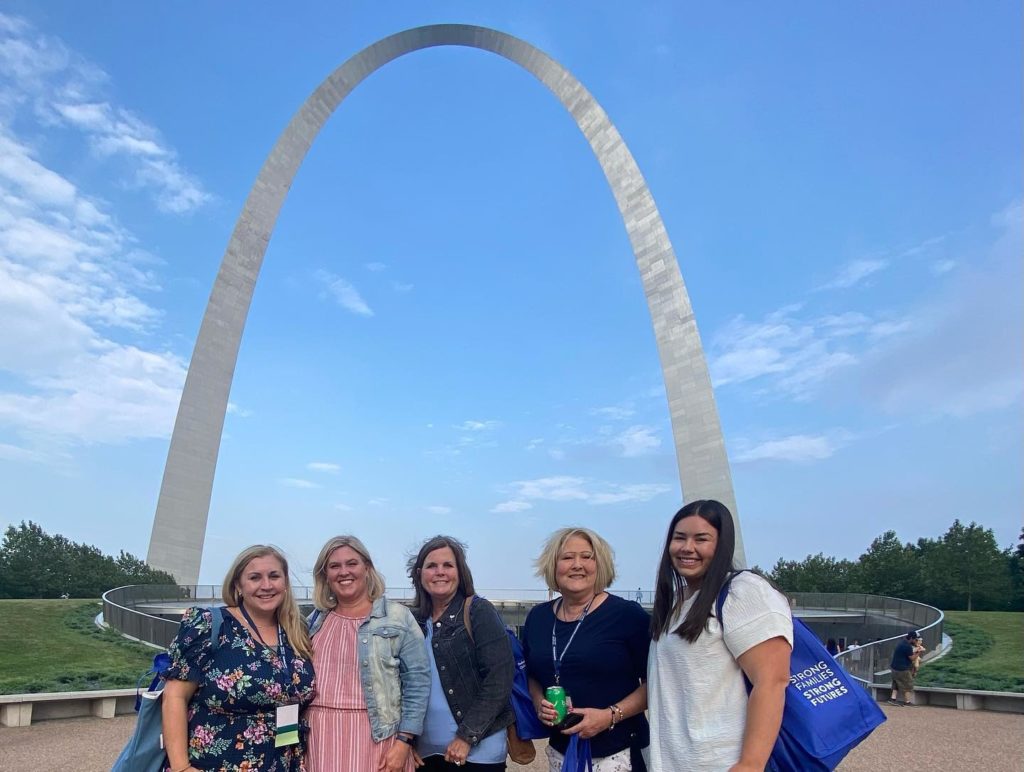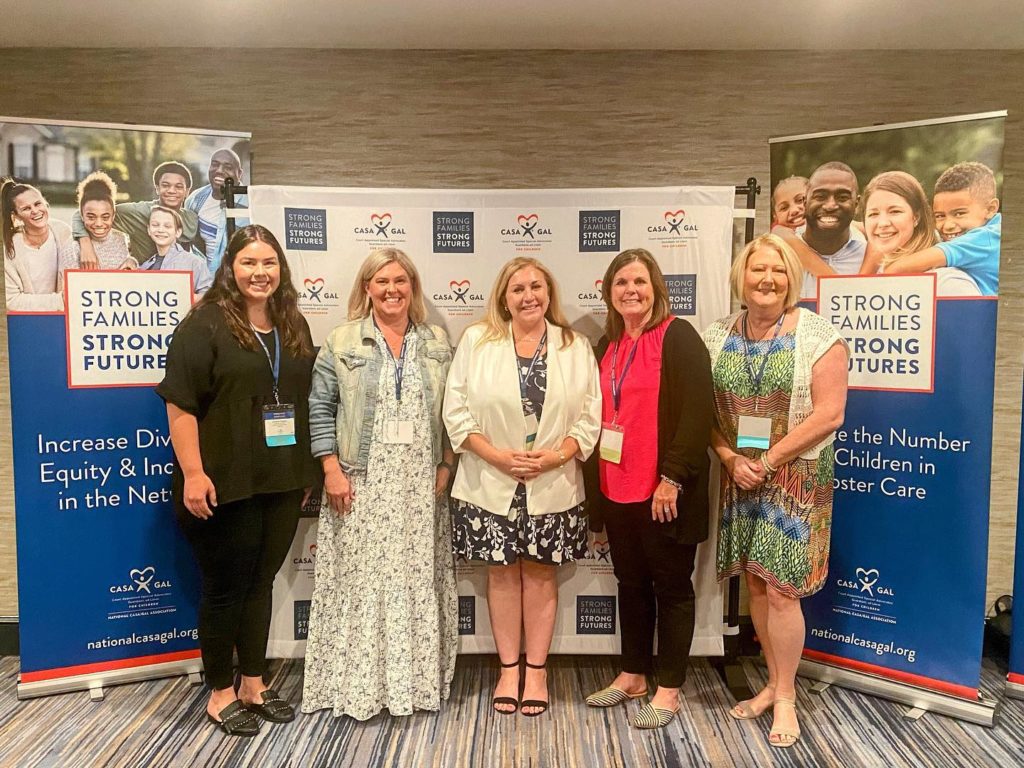2023 National CASA Conference in St. Louis—Our Team’s Takeaways

Thanks to some designated funding from one of grantors and partners, our Court Appointed Special Advocate (CASA) team was able to attend the National CASA Conference in St. Louis, Missouri. We learned so much from the sessions and the incredible, top-notch presenters. We also enjoyed connecting with and learning from CASA programs from all over the country. From the largest CASA programs in Los Angeles and New York City to programs from Alaska and Montana—there was something to be learned from everyone. Our Executive Director, Marcie Smith, was invited to serve on a panel entitled Dynamic Discussions: Learnings from Suburban CASA/GAL Programs. It was an honor to have our program highlighted by National CASA as Marcie had a chance to talk about the umbrella program model of The Children’s Haven and suburban CASA programs in the Southeast.
The theme of the conference was Strong Families, Strong Futures. The family-centric message was refreshing, inspiring, and unifying. Our team wanted to share our biggest takeaways from the conference…you’ll also see these takeaways in action as we intentionally work to serve children AND their families.
Julie’s Takeaways:
- Strengthening parents will strengthen families, giving children the chance to grow up knowing their family.
- When creating a circle of care for the children we serve; the question should be asked “Who already loves this child?”
- Recruiting advocates is a continual and comprehensive approach to better serving the children who we serve.
- As child welfare professionals we get to facilitate the lives the families/children want to create, nor create or design the lives we think they should have.
Trisha’s Takeaways:
- Liberate families by finding the strengths and build upon them – fewer nos and more yeses on recommendations.
- Children are served through strengthening the family.
- Motivation is based on emotion; Momentum is based on values and feedback. Know the family motivation and momentum to support a cooperative and successful plan
- “When we all think alike, no one thinks very much.” – Walter Lippman. Be like Albert Einstein. Always be willing to think outside the box.
Mandy’s Takeaways:
- If a child in foster care has one case manager during the life of their case, their chance for reunification is 74%. If a child has two case managers during the life of their case, their chance for reunification drops to 17%. If a child has three case managers during the life of their case, their chance for reunification drops to 5%.
- If you care about kids, you have to care about their parents. Best interest of the child = best interest of the parents.
- Our current system is designed to keep youth from physical harm, and separation often happens. We now know that children cannot thrive without also healing the grief and loss that come after separation from a caregiver, and that the wellbeing of caregivers has a direct impact on this healing process.- aliainnovations.org
Caroline’s Takeaways:
- “Resilience does not happen by itself, Resilience is built through meaningful relationships” “With caring connections, we may be able to transform some of the later impacts of trauma”
- What is best for the child is for the parents to receive support that they would not get otherwise.
- Accurate and culturally sensitive mandated reporting will not only protect the families in our community, but reduce strain on our child welfare system.
Marcie’s Takeaways:
- Kids usually “do” their pain and rarely “talk” their pain. When we see those pain-based behaviors, we should wonder what pain may have caused them to behave that way.
- Kids need their moms and dads to be ok. It’s that simple.
- Our current role as a system is defined like this: “The major role of the child welfare system is to ensure the safety, permanency and well being of children and youth whose families are not meeting those needs. Dr. Jessica Pryce suggested some wording changes to strengthen the role and focus our vision. A revised role could and should be : “The major role of the child welfare system is to build strategy with strong communities to partner with vulnerable families, co-creating a safe, well and stable home environment.”
- The system has improved. It’s evolutionary that we are helping families. However, if we want to be revolutionary, we have to strengthen families. –Dr. Jessica Pryce

Left to right: Caroline Shelton, CASA Advocacy Coordinator; Mandy Quigley, CASA Advocacy Coordinator; Marcie Smith, Executive Director; Julie Carter, CASA Advocacy Director; Trisha Stiles, CASA Advocacy Coordinator

Left to right: Marcie Smith, Executive Director; Mandy Quigley, CASA Advocacy Coordinator; Julie Carter, CASA Advocacy Director, Trisha Stiles, CASA Advocacy Coordinator; Caroline Shelton, CASA Advocacy Coordinator
